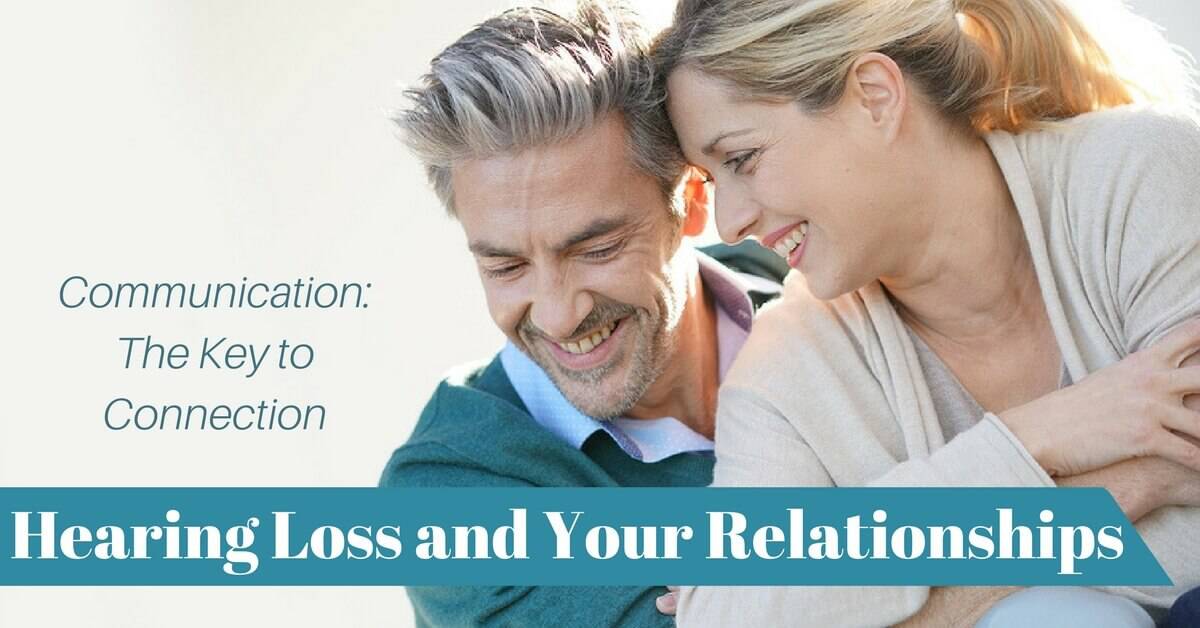Springtime is here again, and so is Better Speech and Hearing Month! For the American-Speech-Language-Hearing-Association (ASHA), the National Institute on Deafness and Other Communication Disorders (NIDCD) and many allied organizations, the month of May provides a chance to raise awareness about communication disorders, offer information, and lead activities to promote hearing health. According to ASHA the theme this year is “Communication: The Key to Connection”.
What are the goals of Better Speech and Hearing Month?
Hearing loss is a highly prevalent problem that is under treated on a wide scale. As so many people who could benefit from treatment are not receiving it, one of the main objectives of Better Speech and Hearing Month is to simply encourage people to go out and get their hearing tested. Getting a diagnosis of hearing loss is the first step towards life-improving treatment with hearing aids. Over the years, this special month dedicated to hearing health has convinced many people to take this crucial step.
Other goals of Better Speech and Hearing Month include identifying and addressing barriers to hearing health care and reducing disparities in access. ASHA strives to make hearing healthcare affordable and achievable by all. If you would like to get involved, there are a number of ideas on how to observe BSHM on ASHA’s website here.
How does untreated hearing loss affect relationships?
Hearing loss can have a number of negative effects on a person’s physical and emotional health, but perhaps the biggest problem is the way it interferes with relationships. Helen Keller once said that of all her sensory deprivations, she missed her hearing the most. She reflected that while her blindness separated her from things, her deafness separated her from people. Being able to communicate and connect with other people is so vital to our happiness, even to our survival. In honor of this Better Speech and Hearing Month’s theme, let’s take a look at some of the ways untreated hearing loss can affect a person’s relationships with others.
Studies show that letting hearing loss go untreated can negatively affect our friends, family, and romantic partners. It especially hurts the people closest to us. Why is this so?
1) Not being able to talk about “the small things”. Day to day communication, especially between couples, often revolves around talking over the small details of life. Something funny that happened at work, a quiet word of support or encouragement. These moments may seem insignificant, but are important to maintaining intimacy, a sense of companionship, and feeling loved. When hearing loss makes these small communications difficult or impossible, a feeling of isolation and loneliness can creep into even the strongest of relationships.
2) The inability to enjoy shared activities. Shared, new experiences such as traveling, attending a dinner party, or going to a concert or movie are important to any relationship, whether it be a friendship or a marriage. Hearing loss that is untreated can make these social events stressful for both the person with hearing loss and their companion, as it is difficult for the hard-of-hearing person to hear and communicate in noisy situations. As a result, the person with hearing loss may lose confidence and begin to withdraw from the outings and activities they once enjoyed, further increasing their isolation, and possibly isolating their loved ones as well.
3) The loss of independence. It is common in relationships in which one partner has hearing loss for the other partner to act as a “hearing helper” who translates and repeats what is being said. While this may seem like a harmless and natural thing to do, this communication arrangement can actually cause resentment to build for both people involved. The hearing partner may grow tired of having to perform this task, while the partner with hearing loss may resent having to depend on their partner so heavily.
How can hearing aids help?
The silver lining? Numerous studies show treating hearing loss with hearing aids can improve a person’s quality of life, relationship satisfaction, communication and enjoyment of social events. A lot of the joy of life comes from enjoying it with others, and there is no reason why hearing loss should stand in the way of that.
Here at Desert Valley Audiology we offer a wide range of audiological services including hearing tests, tinnitus management, hearing aid fittings, custom hearing protection and more. We also have expertise in testing infants and children and can offer the Auditory Brainstem Response (ABR) test and the Otoacoustic Emissions (OAE) test. If you are experiencing any issues with your hearing, don’t hesitate to get your hearing tested today.

